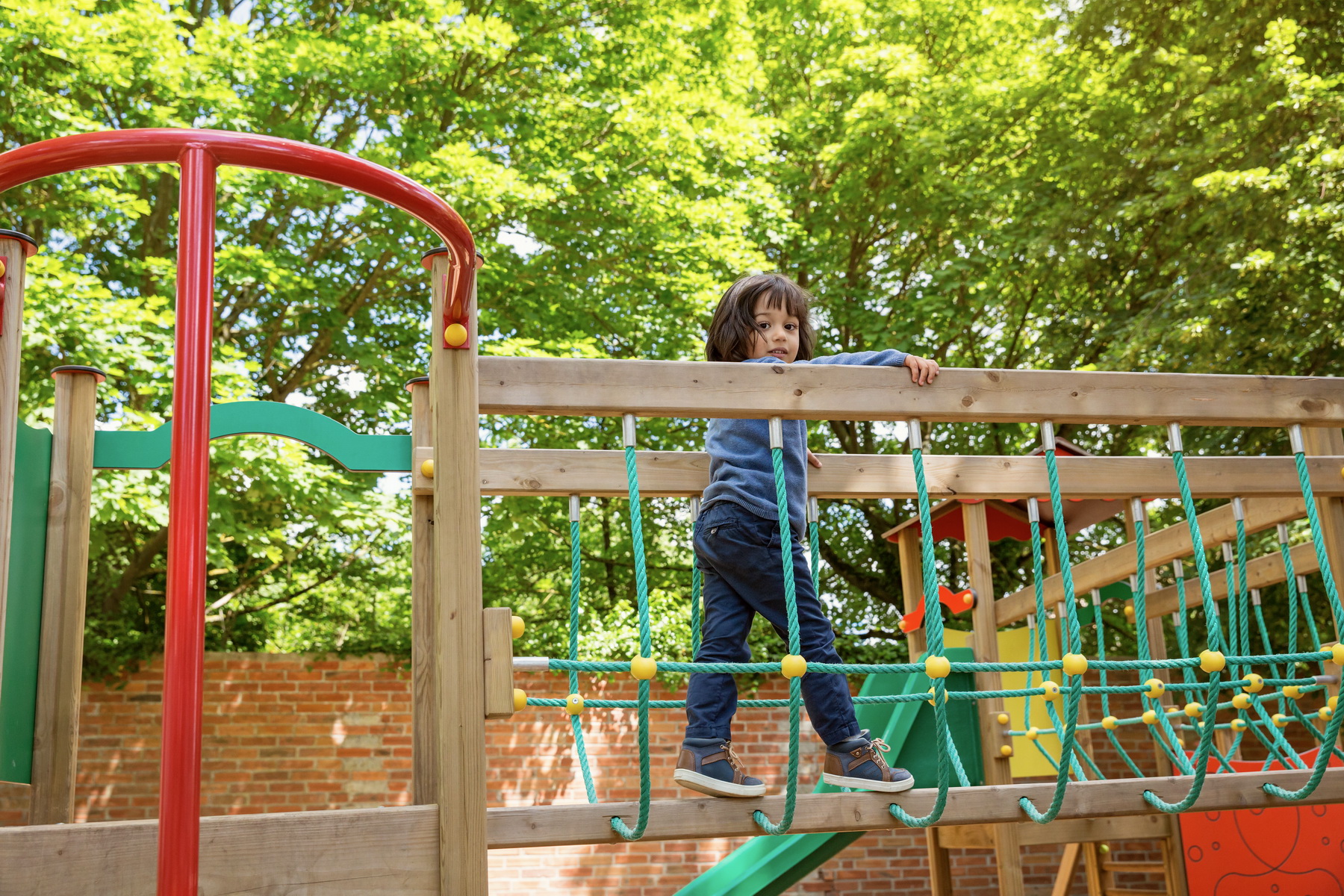Grammar skills Worksheets for Ages 5-8
7 filtered results
-
From - To
Discover our engaging Grammar Skills Worksheets designed for children ages 5-8, available on Kids Academy! These printable worksheets are perfect for helping young learners develop essential grammar skills, including parts of speech, punctuation, sentence structure, and more. Each activity is thoughtfully crafted to spark kids' imaginations while promoting critical thinking and language development. With colorful illustrations and interactive challenges, grammar learning becomes a fun adventure. Whether used at home or in the classroom, our worksheets provide a solid foundation in grammar, ensuring children gain confidence in their reading and writing abilities. Explore our collection today and nurture your child’s love for language!
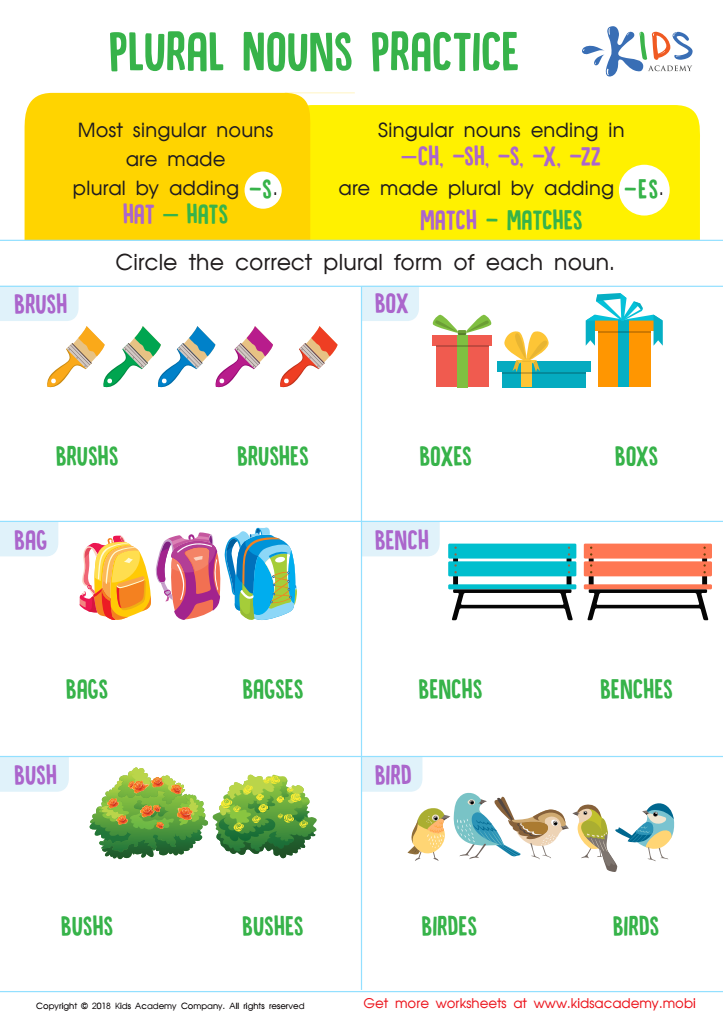

Plural Nouns Practice Worksheet
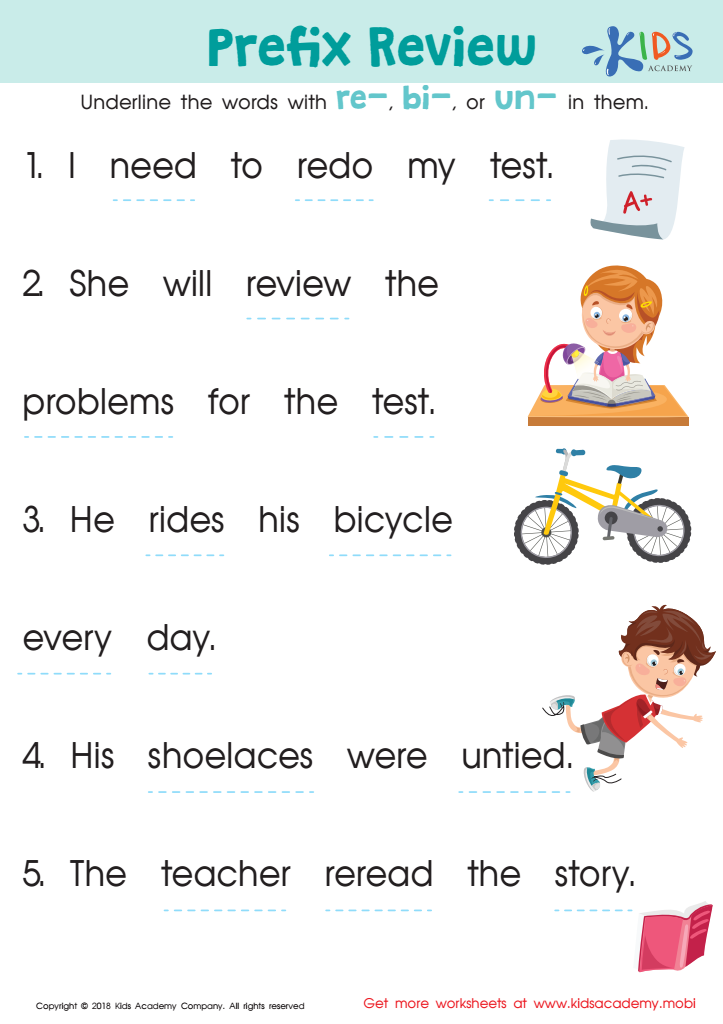

Prefix Review Worksheet
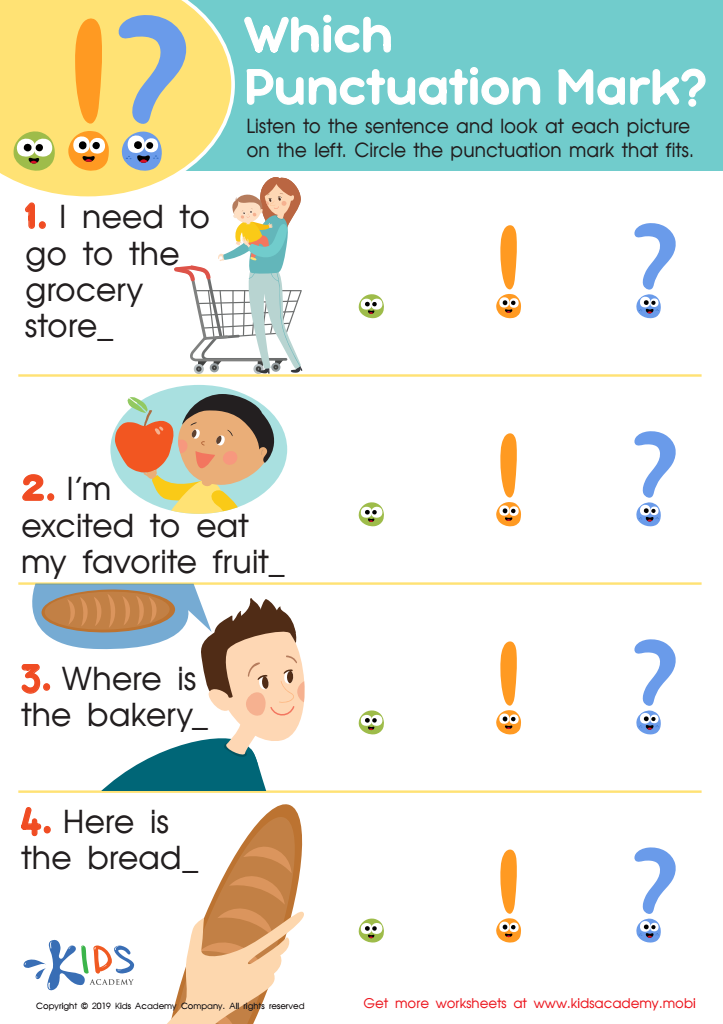

Which Punctuation Mark Worksheet
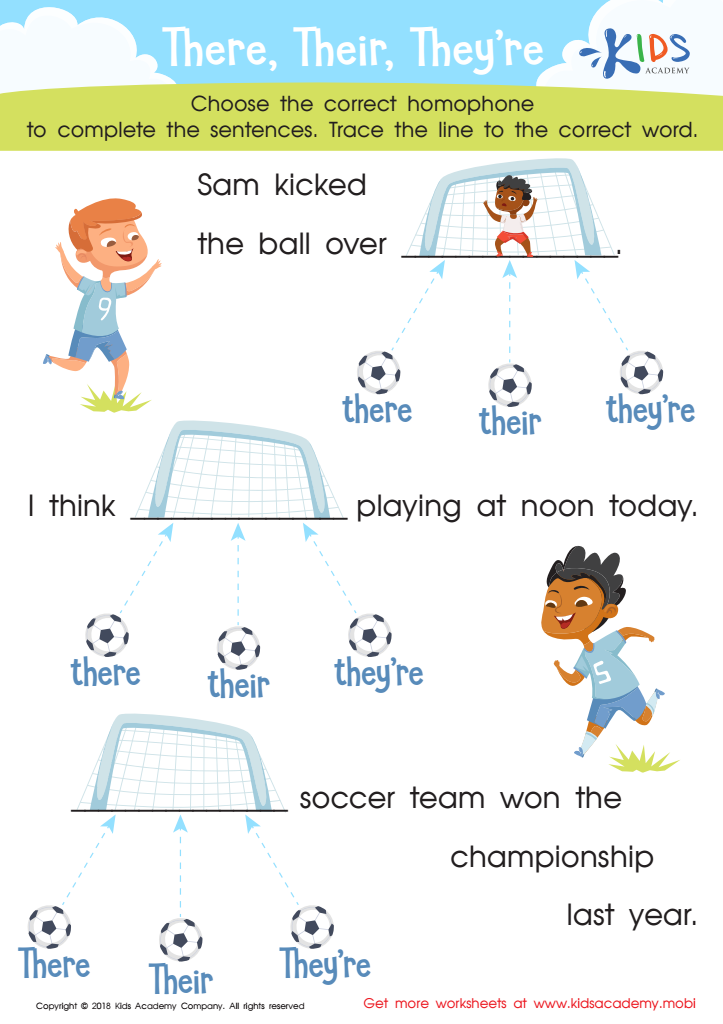

There, Their, They're Worksheet
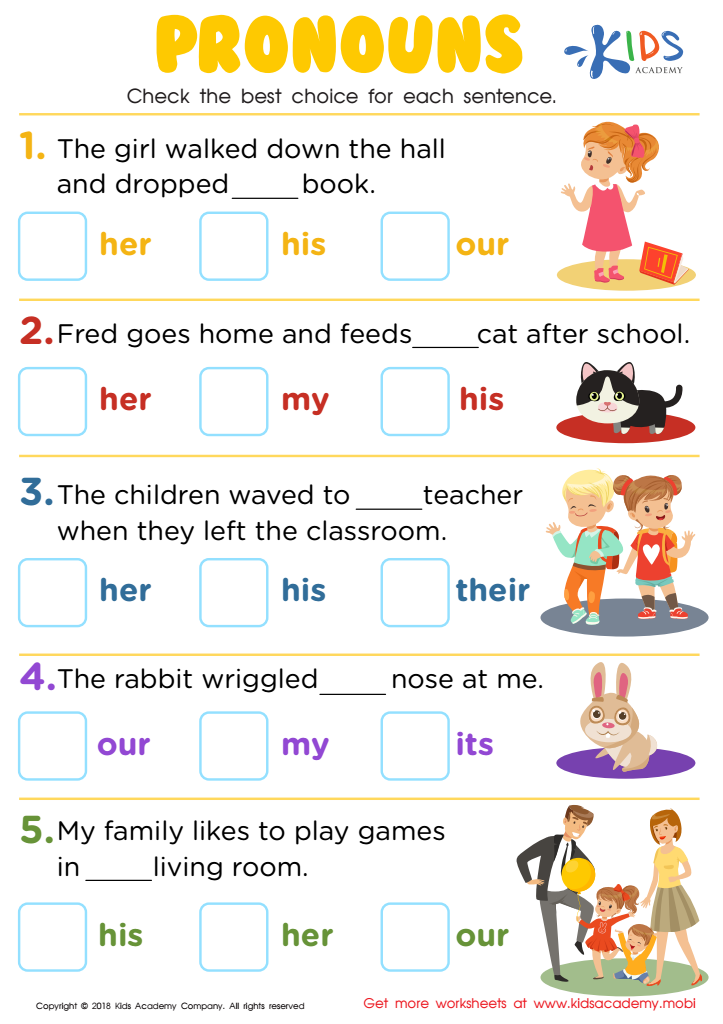

Pronouns Worksheet
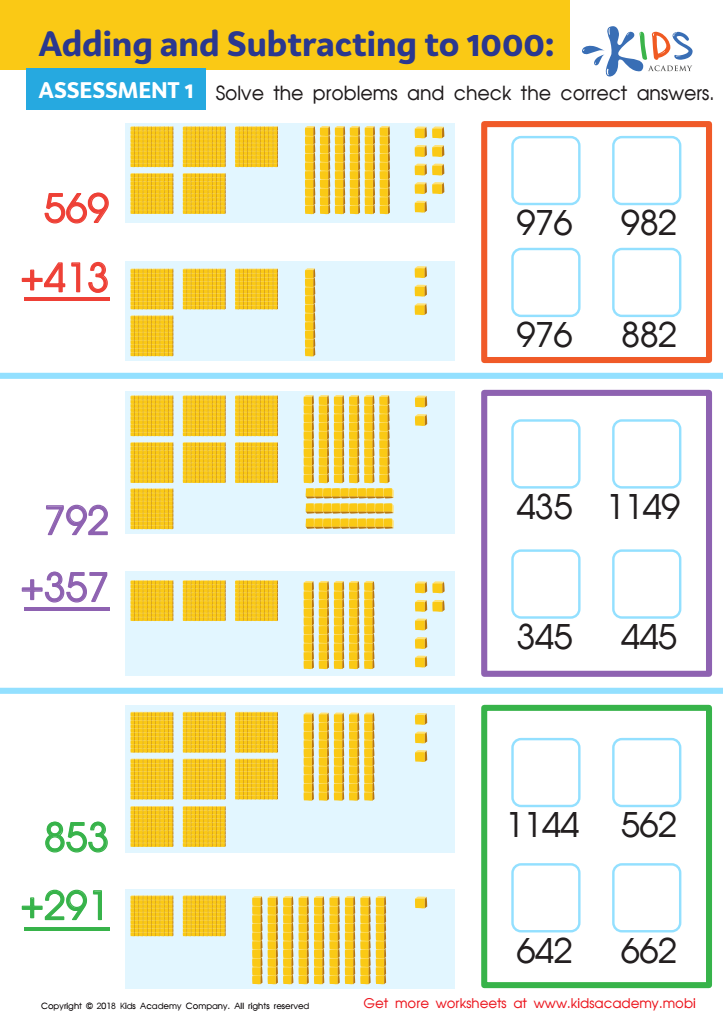

Adding and Subtracting to 1 Worksheet: Assessment 1
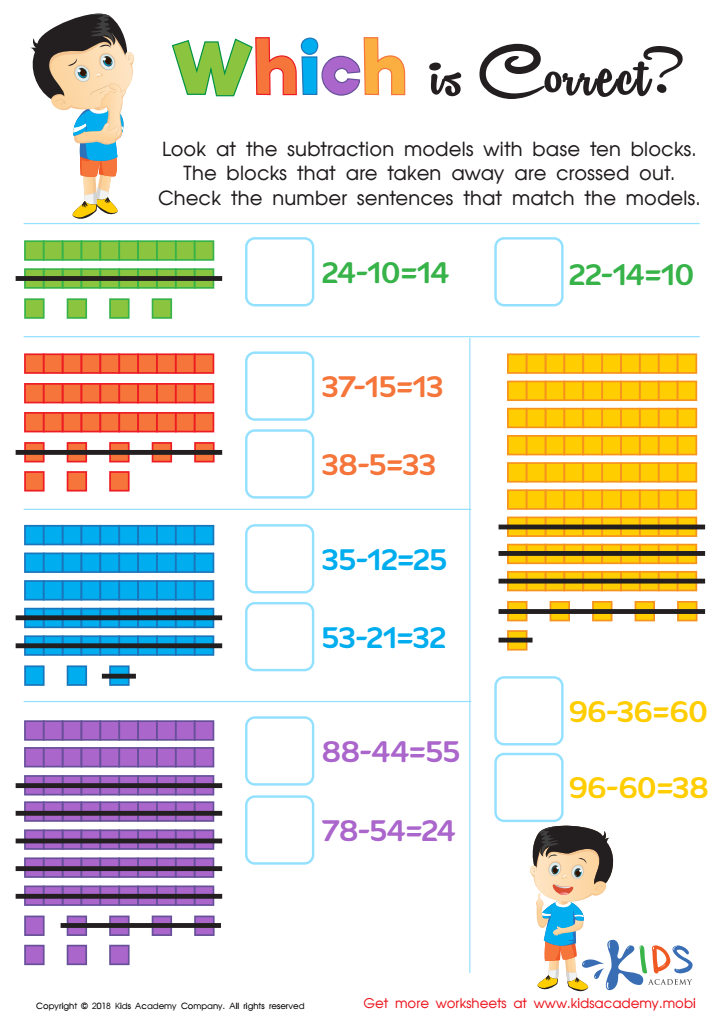

Which Is Correct? Math Worksheet
Grammar skills are essential for children aged 5-8 as they serve as the foundation for effective communication. At this early stage in development, children are beginning to express themselves through writing and speech, making it crucial for them to understand the basic rules of language. Proficient grammar comprehension helps kids convey their thoughts clearly and accurately, fostering better relationships with peers and adults.
Additionally, strong grammar skills enhance reading comprehension. As children learn to identify sentence structures, tenses, and punctuation, they become more adept at understanding the material they read. This foundational understanding will not only support their literacy development but also build confidence in their abilities.
Moreover, early grammar instruction fosters critical thinking. Children learn to analyze sentences and develop reasoning skills as they recognize how different components of language fit together. Furthermore, good grammar is essential in today's digital age, where clear communication is vital in written correspondence.
Parents and teachers play a pivotal role in helping children grasp these concepts, providing guidance and encouragement. Prioritizing grammar instruction during these formative years sets the stage for academic success and promotes a lifelong love of language and learning.
 Assign to My Students
Assign to My Students










